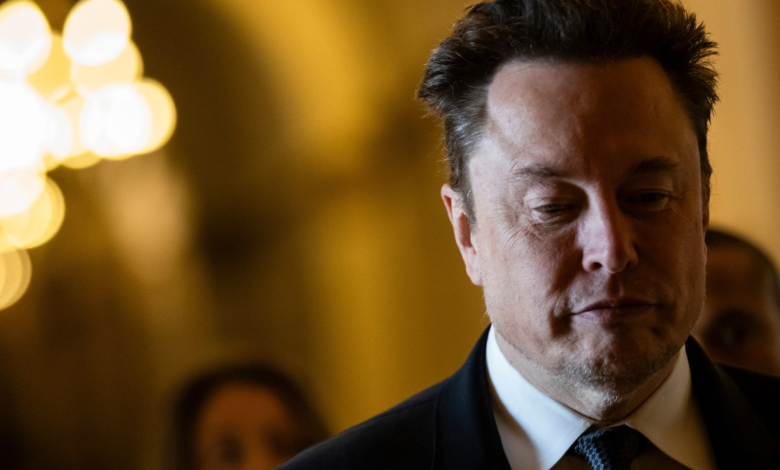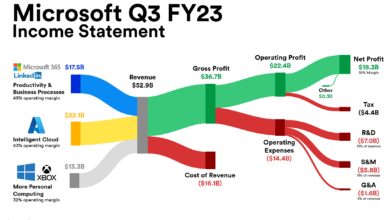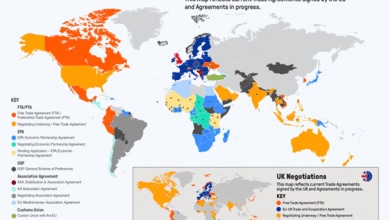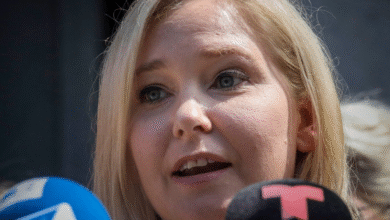Elon Musk Lawsuit: Twitter Shareholders Take Action

Elon Musk is currently embroiled in a significant lawsuit brought forth by Twitter shareholders, with allegations of securities fraud taking center stage. This legal battle, formally known as Rasella v. Musk, has captured the attention of the financial and tech communities alike, as it raises critical questions about disclosure practices under SEC rules. The plaintiffs argue that they suffered considerable losses when Musk amassed shares of Twitter ahead of his infamous buyout, failing to communicate his holdings within the legally mandated timeframe. Such negligence not only misled investors but also sent false pricing signals to the market, as highlighted by Judge Andrew L. Carter in his recent ruling. As the case unfolds, the implications of Musk’s actions on shareholder trust and market integrity are poised to redefine how high-profile acquisitions are scrutinized in the future.
The case involving the tech mogul is best described as a high-stakes legal controversy stemming from allegations of financial misconduct during the acquisition of Twitter. This class-action suit, which has garnered extensive media attention, revolves around the claims of former Twitter investors who assert they were misled due to Musk’s delayed disclosure of his stock purchases. By failing to adhere to SEC guidelines on timely reporting, it is alleged that Musk’s actions created an artificial market environment, impacting the valuations upon which shareholders relied. As the lawsuit progresses, it highlights not only the obligations of influential figures to uphold transparency but also the potential repercussions for market integrity and investor confidence in technology-driven enterprises.
Overview of the Elon Musk Lawsuit
The recent lawsuit against Elon Musk is making waves in the financial and tech world as former Twitter shareholders unite to challenge the billionaire. The case, known as Rasella v. Musk, claims that the Tesla and SpaceX CEO misled the market by failing to disclose his significant shareholding in Twitter within the legally mandated timeframe. This class-action suit has gained momentum after a judge in the Southern District of New York ruled that the case could move forward, allowing plaintiffs to seek damages for what they allege as securities fraud.
The core of the lawsuit stems from allegations that Musk’s failure to disclose his Twitter shares resulted in artificial market prices, causing significant financial losses for investors who sold their shares during that period. As the plaintiffs argue their case, they stress the importance of compliance with SEC disclosure rules, which are designed to protect investors from misleading information and promote transparency in financial markets. The outcome of this lawsuit could not only impact Musk and his financial ventures but also set a precedent for how disclosures are handled by public figures in the tech industry.
Details of the Securities Fraud Claims
At the heart of the allegations in Rasella v. Musk is the assertion that Musk’s late disclosure of his Twitter share purchases violated securities regulations designed to maintain fair trading conditions in the market. Shareholders, led by the Oklahoma Firefighters Pension and Retirement System, believe that Musk’s inaction not only misled investors but also artificially deflated Twitter’s stock price during a critical period. By omitting relevant details about his investment, Musk is accused of undermining the informational integrity that investors rely on when making decisions.
The plaintiffs contend that Musk’s communications through social media, particularly his tweet indicating interest in acquiring a different social network, were misleading. They argue that these statements created a false sense of security among investors, obscuring his true intentions with Twitter, which could have influenced trading behavior. If the court finds Musk liable for securities fraud, it could result in substantial financial penalties and a reevaluation of public disclosures by corporate executives.
Implications for Twitter Shareholders
The ramifications of the lawsuit extend beyond Musk himself and raise critical questions for Twitter shareholders and the broader investment community. If the court rules in favor of the plaintiffs, those who invested in Twitter during the tumultuous period preceding Musk’s buyout could receive financial compensation for their losses. This case highlights the risks associated with investing in volatile markets where public figures like Musk wield significant influence over stock performance.
Additionally, the lawsuit serves as a reminder for investors to remain vigilant about compliance with SEC disclosure rules. Shareholders rely heavily on transparent and timely information when making investment decisions, and any breaches of these rules can undermine market trust. The outcome of Rasella v. Musk could lead to stricter enforcement of disclosure regulations, signaling to public figures that transparency is critical in maintaining investor confidence.
Elon Musk’s Response and Legal Strategies
Elon Musk’s legal team has pushed back against the allegations, arguing that any delay in disclosure was merely an oversight rather than an intentional act of securities fraud. This defense is pivotal in separating Musk’s actions from any criminal implications. His attorneys have stressed that he did not mean to mislead investors and that his ultimate bid for Twitter was legitimate and carried out publicly.
Moreover, Musk’s history of candid communication on social media presents a complex challenge for his defense team. The judge’s referencing of Musk’s tweets as potentially misleading signals a risk for Musk that his informal posts may be scrutinized in a legal context. As the case unfolds, Musk’s approach—whether through settlement or defense in court—will be closely watched by legal experts and financial analysts alike.
Potential Outcomes of the Case
The case against Musk may lead to several possible outcomes, ranging from dismissal of charges to substantial financial liabilities. If the plaintiffs successfully prove their claims of securities fraud, Musk could face significant financial penalties, compensating shareholders for their reported losses due to misleading information. This potential liability not only impacts Musk’s wealth but also raises questions about the future of his business endeavors.
Conversely, if Musk’s defense proves effective, it could set a precedent for future cases regarding CEO disclosures and social media communications. A favorable judgment for Musk could embolden other executives, indicating that vague or delayed disclosures may not always lead to liability. As legal experts monitor the case, the implications for corporate governance and shareholder relationships will be a critical point of discussion.
Key Legal Considerations in Rasella v. Musk
The Rasella v. Musk lawsuit underscores several critical legal considerations surrounding securities fraud. Central to the allegations is the adherence to SEC disclosure guidelines, which require timely reporting of significant financial transactions by company insiders. Musk’s perceived oversights in this regard amplify discussions on corporate governance and the responsibilities of high-profile CEOs in maintaining transparent communication with investors.
The outcome of this case may influence how future disclosures are crafted and managed in the tech industry. Legal experts predict that it could prompt many corporations to reevaluate their compliance measures to prevent similar issues in the future. Furthermore, the integration of social media as a communication tool by executives will require heightened consideration of the legal implications of such communications, especially when they may affect stock prices.
Judge Andrew L. Carter’s Ruling Explained
Judge Andrew L. Carter’s ruling that allows the lawsuit to proceed reflects the court’s acknowledgment of the serious nature of the allegations against Musk. In his opinion, the judge indicated that Musk’s actions had the potential to mislead the public and distort market conditions significantly. This ruling highlights the judiciary’s readiness to hold influential figures accountable for their obligations to public investors.
The judge’s mention of Musk’s tweet, which seemingly misrepresented his interests, suggests that the court is taking the plaintiffs’ claims seriously. This development could inspire other aggrieved parties to pursue similar claims against high-profile executives, elevating the scrutiny faced by public figures when they communicate with the market.
The Role of SEC Disclosure Rules
The SEC disclosure rules are at the core of the allegations against Musk, as they were established to promote fairness and transparency in financial markets. By outlining the necessary timelines for disclosure of significant shareholdings, these regulations ensure that all investors have equal access to critical information that may affect their investment choices. The lawsuit raises questions about the effectiveness of these rules and their enforcement, particularly concerning high-profile individuals like Musk.
Should the plaintiffs succeed in their claims, it might catalyze a review of how the SEC monitors compliance and enforces penalties for non-disclosure. The potential for increased oversight could reshape the landscape of corporate governance, encouraging executives to adopt more rigorous disclosure practices to avoid litigation and maintain investor confidence.
Analysis of Market Signals and Investor Trust
Musk’s alleged failure to disclose his share purchases sparked discussions around market signals and investor trust. When a CEO obscures his financial interests, it not only raises ethical concerns but also erodes trust among investors who rely on transparent communication. The plaintiffs argue that Musk’s actions created a ‘false pricing signal,’ leading to poor investment decisions and economic losses.
Analyzing the market dynamics that follow such revelations, it becomes clear that transparency is vital for maintaining healthy financial ecosystems. This case could serve as a pivotal reminder for both companies and executives regarding the repercussions of misleading market signals. Ultimately, the ruling will likely reinforce the notion that clear and honest communication is essential for preserving investor confidence and promoting equitable trading practices.
Frequently Asked Questions
What is the Elon Musk lawsuit filed by Twitter shareholders about?
The Elon Musk lawsuit involves a class-action case, Rasella v. Musk, where former Twitter shareholders allege that Musk committed securities fraud by failing to disclose his stake in Twitter within the required timeframe. The plaintiffs claim they incurred losses when Musk was buying shares of Twitter ahead of a buyout.
What are the key allegations in the Rasella v. Musk lawsuit?
In the Rasella v. Musk lawsuit, the key allegations are that Musk concealed his share ownership of Twitter, leading to ‘artificially deflated prices’ when plaintiffs sold their shares. The lawsuit argues that Musk’s failure to adhere to SEC disclosure rules misled investors about Twitter’s market valuation.
How has Elon Musk responded to the allegations in the Twitter shareholders lawsuit?
Elon Musk’s legal team argues that the late disclosure of his Twitter share acquisition was simply an oversight, asserting that Musk did not intend to commit securities fraud. They believe that Musk’s actions did not mislead investors materially.
What did the court ruling state regarding the Elon Musk lawsuit?
The court, in the Elon Musk lawsuit, ruled that the case could proceed, agreeing with plaintiffs that Musk’s delay in disclosing his Twitter share purchases sent misleading signals to the market and could constitute securities fraud.
What impact did Elon Musk’s tweets have on the Twitter shareholders lawsuit?
Musk’s tweets, especially one suggesting he might buy a different social network, were cited by the judge as potentially misleading to investors, as they contradicted his actual share ownership of Twitter, contributing to the allegations of securities fraud in the lawsuit.
What are the possible outcomes of the Elon Musk lawsuit over securities fraud?
Possible outcomes of the Elon Musk lawsuit could include financial compensation for affected shareholders if the court finds evidence of fraud, or dismissal of the case if Musk’s defense successfully demonstrates no wrongdoing or intent to deceive.
What are SEC disclosure rules related to the Elon Musk Twitter buyout?
SEC disclosure rules require shareholders with significant stakes to report their holdings promptly to prevent information asymmetry in the market. The failure to follow these rules is central to the allegations in the Elon Musk lawsuit regarding securities fraud.
When did the Elon Musk Twitter buyout take place in relation to the lawsuit?
The Elon Musk Twitter buyout took place in 2022, with the lawsuit initiated by former shareholders claiming losses from his undisclosed stock purchases happening prior to that acquisition.
| Key Aspect | Details |
|---|---|
| Lawsuit Nature | Class-action lawsuit by former Twitter shareholders against Elon Musk for alleged securities fraud. |
| Court | Federal court in New York. |
| Case Name | Rasella v. Musk (Case No. 1:22-cv-03026-ALC-GWG) |
| Plaintiffs’ Claims | Shareholders claimed losses due to Musk’s failure to disclose his shareholdings in Twitter in a timely manner. |
| Defendant’s Argument | Musk’s lawyers argued the late disclosure was an oversight and not an intention of securities fraud. |
| Judge’s Ruling | Judge Andrew L. Carter stated Musk’s failure to disclose constituted a misleading representation and could mislead the public. |
| Impact | The lawsuit may affect Musk’s image and business practices following his acquisition of Twitter, now known as X. |
Summary
The Elon Musk lawsuit marks a significant development in the legal scrutiny faced by influential tech leaders. This class-action lawsuit highlights allegations of securities fraud related to Musk’s failure to disclose his Twitter share purchases in a timely manner. With the ruling allowing the case to proceed, it raises critical questions about transparency and accountability in the tech industry. The outcome of Rasella v. Musk could not only influence shareholder trust but also set a precedent for how executives communicate their stock transactions in the future.




